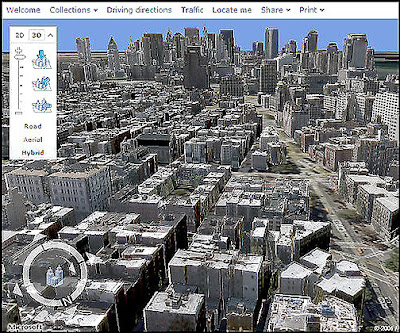 Louisiana gubernatorial Republican Candidate Bobby Jindal talks to campaign workers at Jindal's phone bank operation in Metairie, La., Saturday, Oct. 20, 2007. Jindal is seeking to replace Gov. Kathleen Blanco, who decided not to run for reelection as governor of Lousiana . (AP Photo/Bill Haber)
Louisiana gubernatorial Republican Candidate Bobby Jindal talks to campaign workers at Jindal's phone bank operation in Metairie, La., Saturday, Oct. 20, 2007. Jindal is seeking to replace Gov. Kathleen Blanco, who decided not to run for reelection as governor of Lousiana . (AP Photo/Bill Haber)
This news comes to us all, in INDIA as a joyous and proud GIFT, on an eventful day, when we all are celebtraing the 'TRIUMPH OF THE DIVINE OVER THE DEVIL', the 'BIJAYA DASHAMI'.
Mr. BOBBY JINDAL,36, becomes the 'Youngest and the First Non-White US Governor', of Louisiana since the end of American Civil War, and also is crowned so, as the 'Frst Indian American Governor'.With one single go, Bobby adds three Feathers to his Crown !
Notably, after his first unsuccessful attempt for Governor's office in 2003, when he lost to Democrat Kathleen Babineaux Blanco , the undeterred Bobby was successful in 2004, when he ran for the U.S. Lower House of Congress from a New Orleans suburb and drew 78 percent of the vote.
Last November, he was reelected with 88 percent of the vote, thus becoming only the second Indian-American and the first since 1963, to serve in the Congress.
Rejoice my fellow Indians and join in this glorious moment of history, with our Globan Indians !
Join me in Solidarity and rejoice !
Love and Peace.
BEST OF FUTURE
================================
"Rep. Bobby Jindal (R) became the nation's first Indian American governor Saturday, outpolling 11 rivals in Louisiana and drawing enough votes to avoid a runoff election next month.
With about 90 percent of the state's nearly 4,000 precincts reporting, Jindal had 53 percent of the vote. His nearest competitor, state Sen. Walter J. Boasso (D), had 18 percent .".............. reports Peter Whoriskey the Washington Post Staff Writer.
Louisiana holds an open gubernatorial election, with candidates of all parties competing. By drawing at least 50 percent of the vote, Jindal avoided a Nov. 17 runoff race with Boasso.
"Let's give our homeland, the great state of Louisiana, a fresh start," Jindal said to a cheering crowd at his victory party, according to the Associated Press.
Jindal, 36, was making his second attempt to become Louisiana's first non-white governor since Reconstruction.
The last one was P.B.S. Pinchback, a black Republican who served briefly between 1872 and 1873, at a time when many white voters were disenfranchised.
Jindal, whose given name is Piyush, is the American-born son of Indian immigrants; his parents moved from New Delhi to Baton Rouge so his mother could take graduate classes at Louisiana State University.
But the son charted a new course in the new country.
When he was 4, he decided to call himself Bobby -- after the youngest son on the "Brady Bunch" television show. In high school, he gave up Hinduism and became a Christian; and during his first year at Brown University, he was baptized as a Roman Catholic. His wife, Supriya, is also a Catholic convert.On the campaign trail, his origins often aroused curiosity and comment. But Jindal sometimes deflected related questions.
"People want to make everything about race," he said during one of the debates. "The only colors that matter here are red, white and blue."
Jindal has earned a political reputation as a brainy, busy wonk, one who is inclined to give a 31-point statement on an issue.
After graduating magna cum laude from Brown and being selected as a Rhodes Scholar, Jindal worked for two years as a consultant at McKinsey and Co.
He then talked his way into his first high-profile political job, as Louisiana's secretary of health and hospitals.
In 2001, he joined the Bush administration as the assistant health and human services secretary for planning and evaluation.
Two years later, Jindal made his first attempt at the governorship. He lost to Democrat Kathleen Babineaux Blanco in a runoff, but the race gave him the kind of statewide prominence that none of his lesser-known rivals in this year's contest could boast about.
Shortly afterward, in 2004, he ran for the U.S. House from a New Orleans suburb and drew 78 percent of the vote. Last November, he was reelected with 88 percent of the vote..................
...............Especially with targeted audiences, Jindal could speak to the Republican base.
He professed his opposition to abortion, signaled a willingness to consider the teaching of intelligent design, and discussed the need to cut taxes........................
"We've got a government that's out of control," he said in his stump speech. "We've got a government that spends our money without any regard. We're in the top five in having the most crooked politicians in America. We're going to change that."....



















